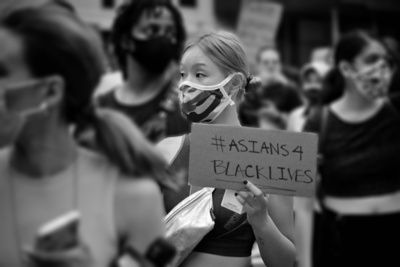Lunar New Year and Black History Month in the U.S. happen at the beginning of the calendar year, a cyclical marker that prompts reflection and a focus on setting new intentions. Hear from Workmates about what these annual observances mean to them and their resolutions moving forward, and how these celebrations inspire a renewed sense of solidarity for Asian and Black communities.
Year of the Tiger: Embracing Strength, Boldness, and Bravery
Christina Chen is a search product manager at Workday and the membership engagement lead with the East Asian Employee Belonging Council (EBC):
Following the Year of the Rat (2020)—which begins the zodiac cycle—and the Year of the Ox (2021), the Year of the Tiger brings an interesting new dynamic. The symbolism associated with the tiger is strength, bravery, and authority, all of which bring renewed vitality to my personal and professional life. My hope is that the Year of the Tiger inspires everyone to shed their imposter syndrome, pursue their goals with passion, and push to be heard and respected.
Jennifer Wong is a director of product management:
Looking forward to 2022, there are still a lot of unknowns: COVID-19 variants, global warming, natural disasters, political struggles—you name it. But the symbol of the tiger calls for all of us to be brave in facing the unknowns. Bravery also means having the courage to ask for help. It’s common for people to hide their weaknesses in fear of how they may be perceived. May the Year of the Tiger inspire us to be brave in recognizing when we need support and having the courage to ask for it.
Celebrating Lunar New Year With a Markedly Different Feel
Wong: Last year amid the rise of anti-Asian attacks, I celebrated Lunar New Year in fear. Are we safe to go to Chinatown to buy decorations for the celebration? Am I safe to run alone outdoors? Will people judge if I speak Chinese in public? Then in the months following, the communal rallying in the Stop Asian Hate movement called out the tiger in me. It instilled in me the bravery to be proud of our culture and values. I also noticed an increased interest among non-Asians to learn more about our culture, and I took the opportunity to share more about other Asian cultural celebrations, such as the Mid-Autumn Festival and Winter Solstice. This year, I am going to teach my teammates how to make a traditional Chinese dessert, tang yuan, at our team’s Lunar New Year celebration. I cannot be more proud to share my culture with others.
Lily Tse is a senior global integrated marketing manager:
The rise in anti-Asian attacks last year has actually brought me closer to my Asian roots and community, and I definitely see a heightened interest in sharing the Lunar New Year tradition with my kids and community. When an attack is about you (your ethnicity, your belief, your values), it feels very personal. But instead of letting that feeling take you down, let it spark a desire to take these emotions and do something powerful with them and serve others.












